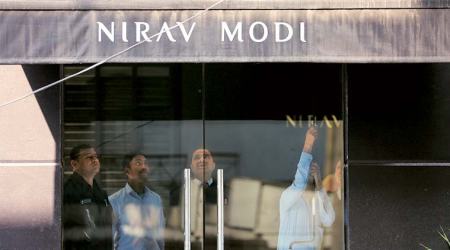 The Left has dominated state politics ever since it won office the first time in 1978. Barring once, in 1988, the CPM-led Left Front has won every election in the state since (File)
The Left has dominated state politics ever since it won office the first time in 1978. Barring once, in 1988, the CPM-led Left Front has won every election in the state since (File)
The assembly elections in Tripura will have a major impact on the political fortunes and future trajectory of the CPM and BJP, the leading players in the contest, but they are especially consequential for the CPM. Tripura is the last red fort standing. The Left has dominated state politics ever since it won office the first time in 1978. Barring once, in 1988, the CPM-led Left Front has won every election in the state since. It lost West Bengal after dominating politics there for over three decades in 2011, while Kerala sways between the Left and the Congress-led United Democratic Front. Manik Sarkar, the Chief Minister of Tripura, is the party’s outstanding mass leader and a defeat will certainly diminish his stature. At a time when its electoral footprint is diminishing across the country, the CPM can ill afford to lose Tripura.
The BJP, clearly, recognises its opportunity and has invested heavily in the state by building the party at the grassroots and crafting a powerful coalition with the Indigenous Peoples’ Front of Tripura (IPFT), a tribal outfit. Since 2015, the party has focussed on expanding its influence in the Northeast with the help of the RSS network in the region. It has inducted leaders from other parties — for instance, Himanta Biswa Sarma from the Congress — and tied up with regional groups to build rainbow coalitions highlighting local concerns.
This tactic, however, would be tested in Tripura if the tribal identity politics emphasised by the IPFT triggers a counter-mobilisation of the Bengali-speakers, who constitute nearly 70 per cent of the state’s population. The tribal-non-tribal faultline had, in the 1980s, triggered a violent insurgency in the border state. The Congress rode the unrest to win the 1988 assembly polls, but could not consolidate the gains and lost the next election. To the Left government’s credit, it was successful in countering the insurgency while also bridging the tribal-non-tribal/Bengali divide.
The Left government, however, failed to build on the social peace and implement a transformative development agenda despite its long years in office. Tripura ranks high on indices like literacy, but social and physical infrastructure remains rudimentary.
Geography and topography militate against the development of big industry in the state and hence needed imaginative interventions from the government. Those didn’t come and the state economy has remained underdeveloped with limited employment avenues. The BJP’s opportunity in Tripura depends on tapping the discontent among unemployed youth and turning it against the incumbent government.
For all the latest Opinion News, download Indian Express App



























